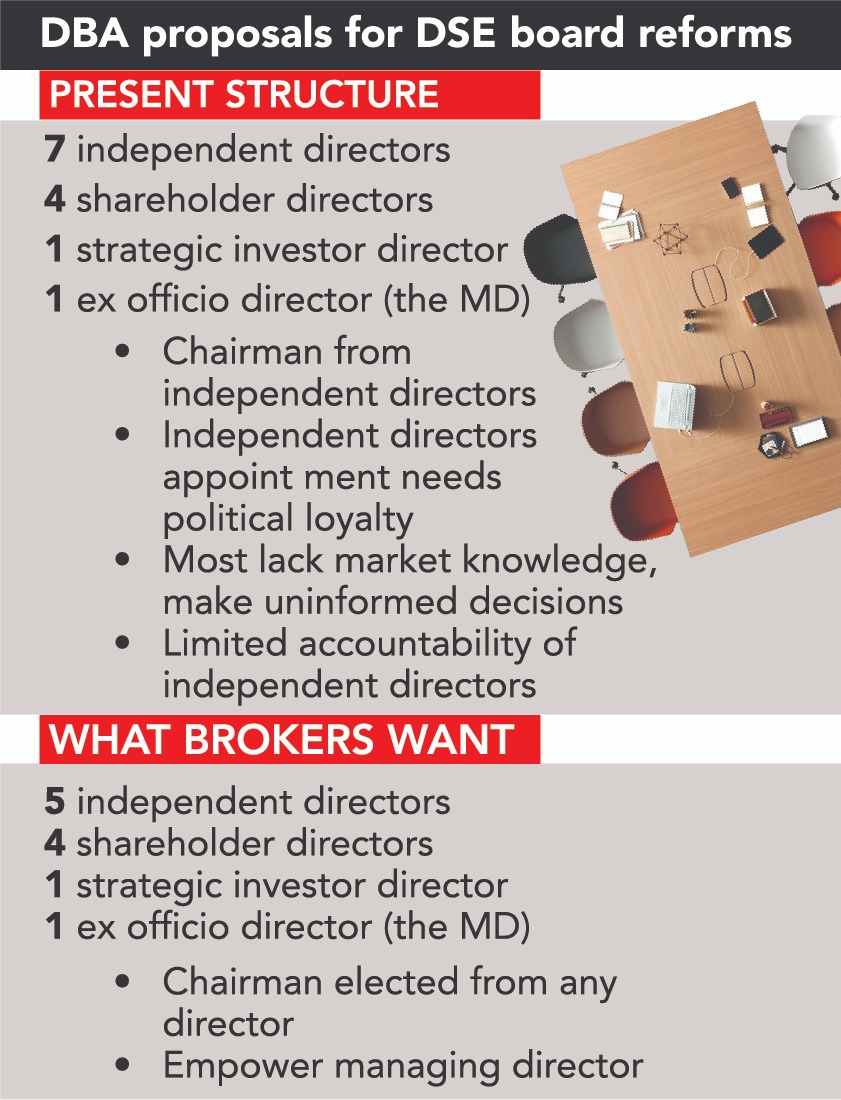The Dhaka Stock Exchange Brokers Association (DBA) has urged the government to overhaul the demutualisation scheme of the country’s premier bourse.
Without structural changes, the brokers warn, investor confidence and the long-term health of Bangladesh’s capital market will remain fragile.
In a formal letter submitted on 17 July, DBA President Saiful Islam outlined detailed proposals for reform. The letter was sent to Dr. Anisuzzaman Chowdhury, Special Assistant to the
Chief Adviser and Chairman of the Capital Market Development Committee. Copies were also forwarded to the Bangladesh Securities and Exchange Commission (BSEC) and the Dhaka Stock Exchange (DSE) itself.
Political appointees blamed for market damage
At the heart of DBA’s concern is what it calls a “deeply flawed governance structure” enshrined in the 2013 demutualisation scheme.
While the framework was designed to modernise DSE by separating ownership from management, brokers say it instead allowed political influence to flourish through appointments of so-called independent directors.
Under the current structure, the DSE Board comprises 13 members. These include 7 independent directors, 4 shareholder directors representing brokers, 1 strategic investor director, and the managing director as ex-officio.
The chairman must be chosen exclusively from the independent directors — a provision brokers claim opened the door to political appointments during the previous government’s tenure.
Market experience sidelined
DBA alleges that many of these so-called independent directors were appointed based on loyalty, not expertise.
Lacking knowledge of the capital market, they often failed to make informed decisions.
“This structure disconnected the board from the realities of the market and left it vulnerable to misuse,” DBA President Saiful Islam said.
The association argues this governance model damaged investor confidence, weakened the Exchange’s institutional foundation, and allowed decisions contrary to market interests.
Reform proposals for a balanced board
To prevent future abuses, DBA has proposed restructuring the board to include 11 members.
The revised structure would consist of 5 independent directors, 4 shareholder directors, 1 strategic investor director, and the managing director.
Importantly, the chairman would no longer be selected solely from independent directors. Instead, the position would be open to any director except the ex-officio MD, with the chairman elected by board members at their first meeting.
“This change would restore balance and transparency while removing undue political influence from leadership positions,” said Islam.
Managing director’s empowerment
DBA also raised concerns over the reporting lines of the DSE’s Chief Regulatory Officer (CRO).
Currently, the CRO reports to the Regulatory Affairs Committee (RAC) on regulatory matters but only reports to the CEO for administrative purposes.
This separation, brokers argue, has created confusion, weakened coordination, and increased mistrust among market participants.
DBA recommends empowering the managing director as the reporting authority for the CRO.
Under this proposal, all regulatory activities would fall within the MD’s jurisdiction while maintaining reporting lines to the RAC.
“This would ensure the MD, as head of the organisation, remains fully informed and accountable on regulatory affairs,” DBA said.
Unlocking flexibility in management
Finally, DBA called for abolishing a rigid clause in the demutualisation scheme that locks DSE into a fixed organisational structure.
Brokers argue this restricts the Exchange’s ability to adapt its human resources and organisational needs as the market evolves.
Granting the board authority over its structure would allow timely, effective decision-making and help DSE function efficiently as a self-regulatory organisation.
Trust cannot wait
The brokers believe these reforms are urgent.
Investor confidence has been shaken in recent years by mismanagement, and with the economy under pressure from inflation and slowing investment, restoring faith in the market is critical.
“Transparency, accountability, and governance structures that serve the market — not political convenience — must guide these reforms,” DBA President Saiful Islam said while talking to Times of Bangladesh.
While the government has yet to respond formally, brokers remain hopeful the current administration will act decisively.
“Reforms are overdue, and this time, the market cannot afford to get it wrong,” Saiful Islam said.


